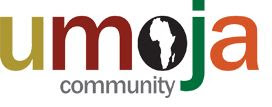But it’s not. I’m almost feeling . . . optimistic, uncharacteristically calm. Is this denial? Have I drunk so much coffee and eaten so much junk food (stress eater!) that I’ve numbed myself out so completely, immunized against my inner critic?
For certain, there are kernels of truth in my Greek chorus’ remorseful refrain. I could have more effectively prepared student. I could have used my time more wisely. And I’m definitely a master of “acting as if.” But for some reason, my self-recriminations aren’t piercing my so deeply.









